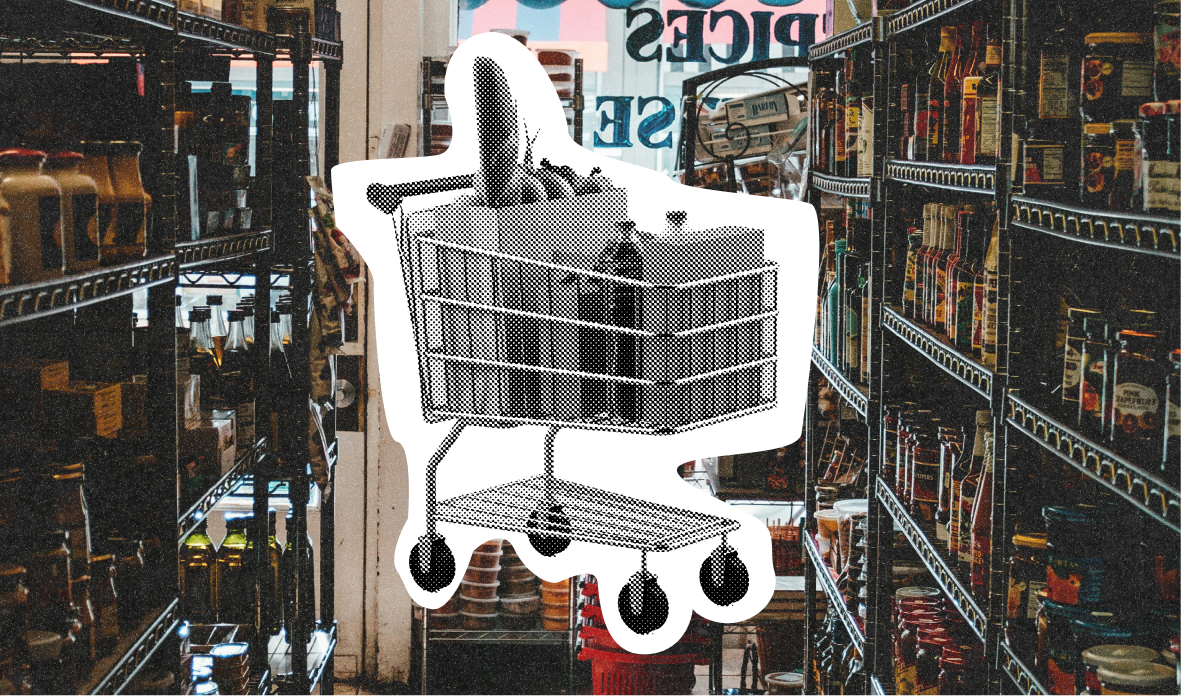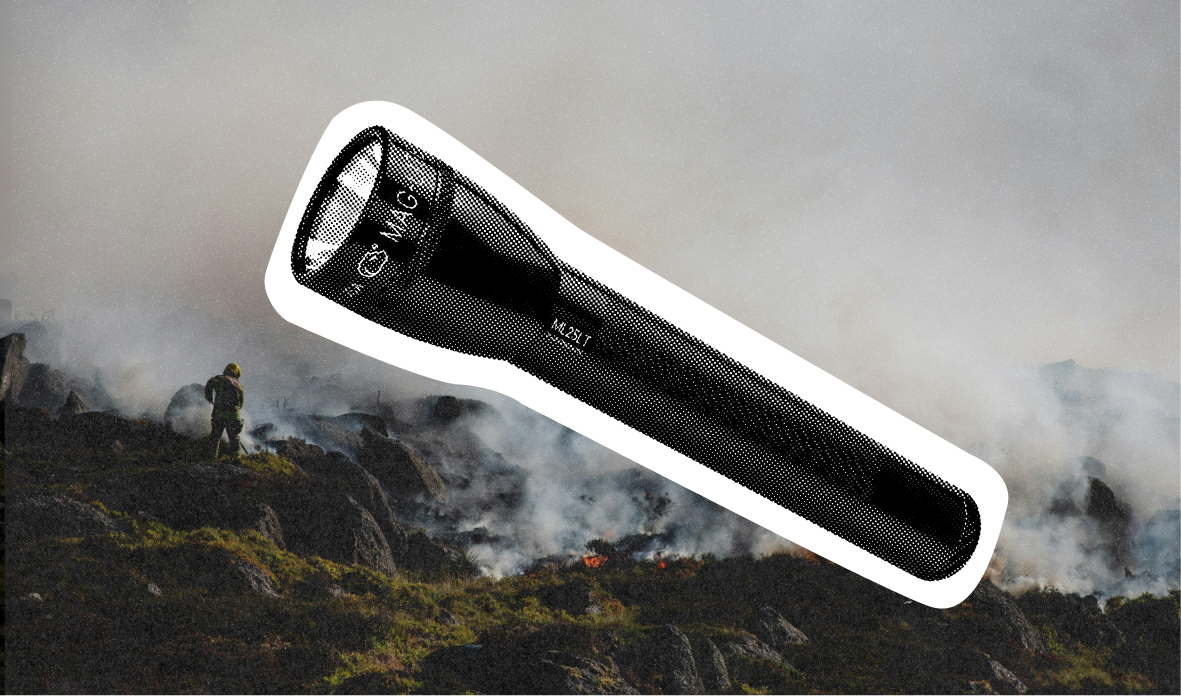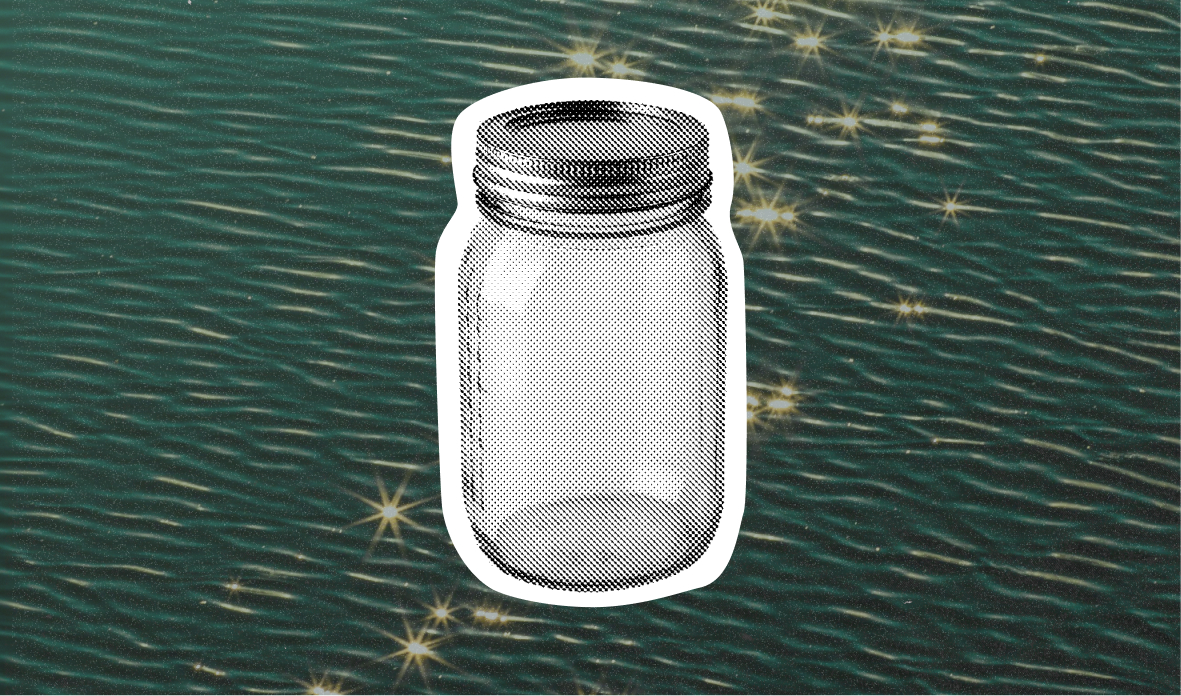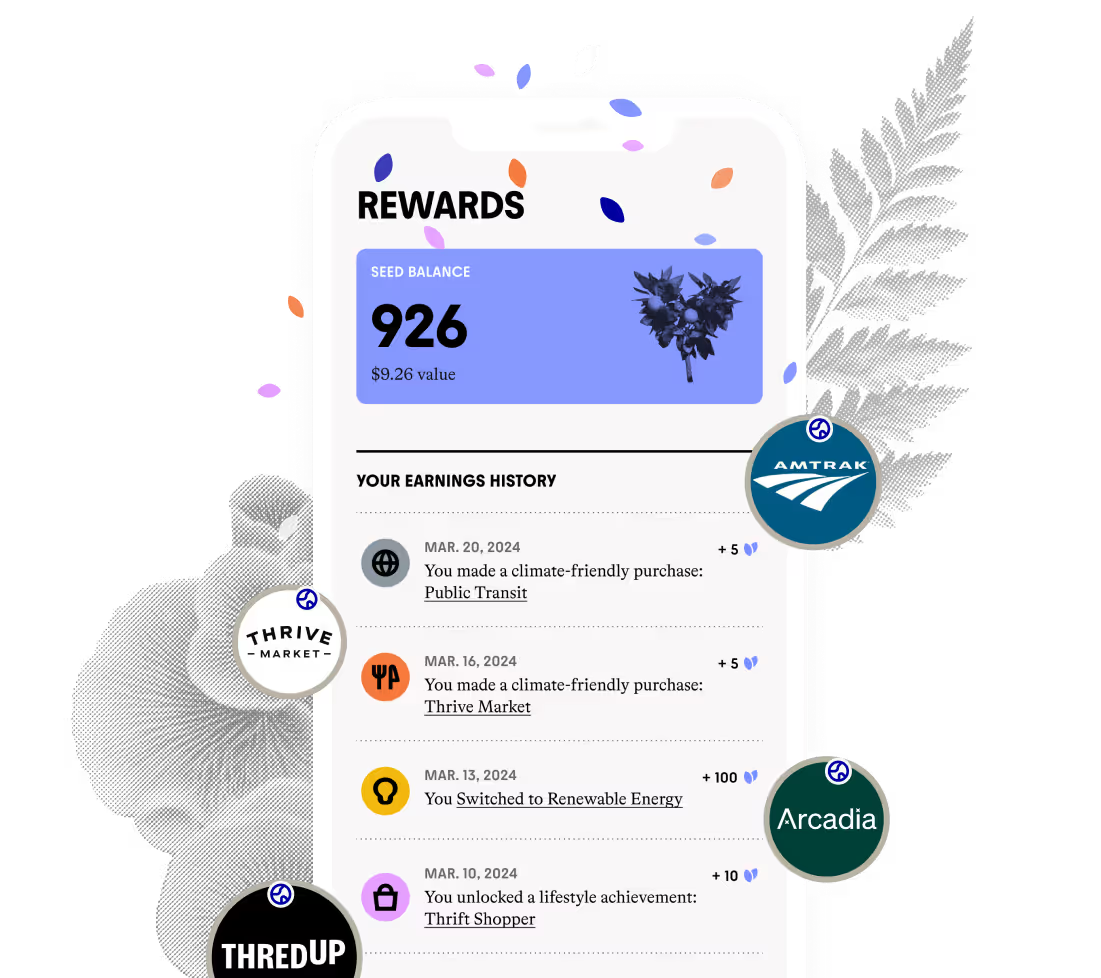Ripple Effects: How to Convince Your People to Live More Sustainably
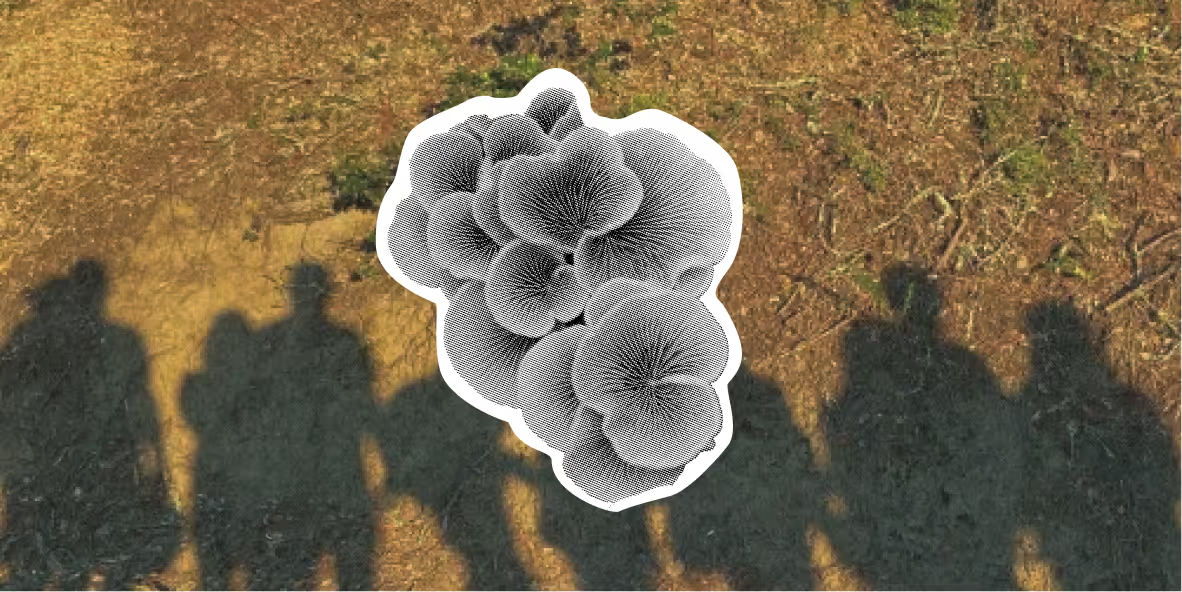
Can you convince others to take climate action without being a nag? When you do what you can live sustainably, there inevitably comes a time when you want to spread the gospel and share your practice with others. It's a fantastic way to expand your low-carbon impact, but how do you communicate with people in a way that they'll actually be receptive to?
On this episode, you’ll hear:
- Unique ways that our listeners are sharing their climate practices with people in their lives.
- A way to invoke action for anyone who cares about climate.
- Alyssa Barber shares techniques and tips she's used to build a community of hundreds of thousands of people who care about climate.
- How solar panel installation is a lesson in community climate action.
Here are some of the people you'll hear from in this episode:
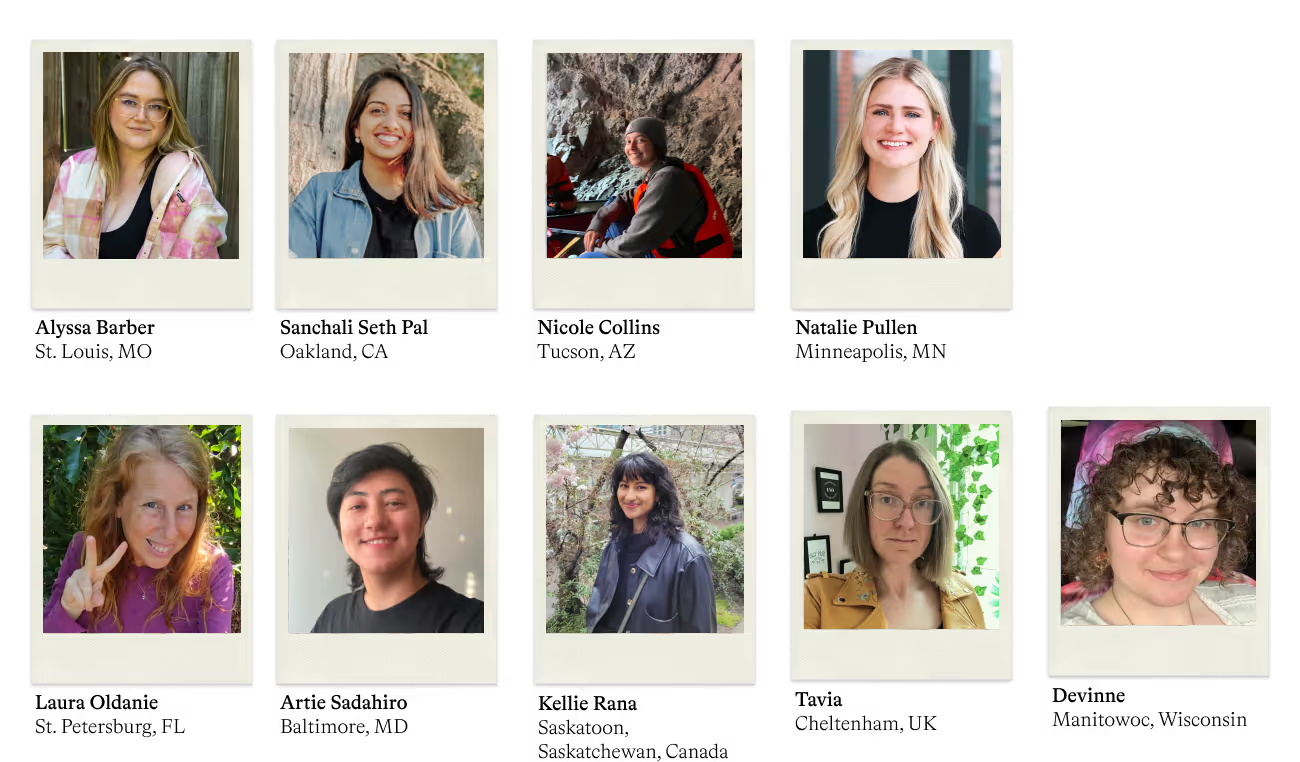
Citations and Further Reading
- The Montgomery Bus Boycott (U.S. National Park Service)
- A Timeline of the Montgomery Bus Boycott - Beacon Broadside
- Developer Abandons Keystone XL Pipeline Project, Ending Decade-Long Battle
- The Unlikely Takedown of Keystone XL
- Quantifying the potential for climate change mitigation of consumption options
- The Science Behind Why People Follow the Crowd | Psychology Today
Episode Credits
- Listener contributions: Nicole Collins, Natalie Pullen, Laura Oldanie, Artie Sadahiro, Kellie Rana
- Featuring: Alyssa Barber and Sanchali Seth Pal
- Editing and engineer: Evan Goodchild
- Hosting and production: Katelan Cunningham
- With footage from Democracy Now! Monday, March 3, 2014 and Montgomery Bus Boycott revised by gdortchjr via the Internet Archive.
{{cta-join2}}
Full Episode Transcript
Katelan (00:00):
Hi, welcome back to Second Nature, a podcast from Commons. Commons is an app that tens of thousands of people use to earn rewards and track their sustainable living progress. And on this show, we talk to people about how they're living sustainably in an unsustainable world,
Katelan (00:19):
Maybe you've been in this situation before, you're out to dinner with friends, and you compliment your friends top and then they say, don't hate me, but I got it at Sheen. Or maybe you're catching up with family and you're super excited to tell them about your new composter, but right when you get to the good part, you see everyone's eyes start to glaze over. <Laugh>. Maybe that's just me. I don't know. No matter how motivated and optimistic you are about your own sustainable practice, there comes a time when you feel the need to spread the gospel. You wanna tell people about how this practice has changed your life or saved you money or lowered your carbon footprint, but you don't wanna come off snobby or like a big downer. You wanna talk to people in a way that will actually resonate with them. But how do you do it? That's what we're gonna find out today. I'm your host, Kaitlyn Cunningham, and on this episode we're gonna hear how folks in our community have successfully gotten friends and family to join in their sustainable practices. We're talking to Commons founder St. Charlie, St. Paul about what happens when we expand our personal impact and climate communicator. Alyssa Barber is answering some of our community's toughest questions about how to get more people to care about climate, even when it's really, really, really hard. Let's do it.
Katelan (01:45):
When you've talked to people about sustainable living or taking climate action, you may have heard rebuttals like the government and companies are to blame. I can't do anything about it, or rich people are the real problem. While it's true that companies, governments, and really wealthy people have an outsized impact on the environment, that doesn't change the fact that collectively we hold a lot of power, which admittedly is hard to realize when you're thinking of your actions in isolation. I think at some point we all fall victim to that thinking that we're too small to matter. When that happens to me, I funny enough, fall back on this headline from The Onion that I read 14 years ago. It goes, how bad for the environment can throwing away one plastic bottle be 30 million people wonder? It's a satirical reminder that we're part of something bigger than ourselves, which is a fact that's easy to forget in our day-to-Day lives. But you know, you don't have to look that far back in history to find examples of individuals coming together to force real change. For example, at the end of 1955, after Rosa Parks refused to give up her seat on a bus, the Montgomery bus boycott began.
Speaker 2 (02:56):
At present, we are in the midst of a protest, the Negro citizens of Montgomery representing some 44% of the population, 90% at least of the regular Negro bus passengers are staying off the buses. And we plan to continue until something is done
Katelan (03:16):
For over a year. Black people in Montgomery walked and carpooled and the city lost out on tens of thousands of bus fairs every day. Montgomery's buses were officially desegregated the following year in 1956. More recently in 2011, you may remember people started protesting the construction of the Keystone XL Pipeline. The pipeline would've covered over 1000 miles, transporting oil from Canada all the way down to the bottom of Texas,
Speaker 3 (03:44):
Thousands of young people here in the streets of Washington DC marching to the White House to risk arrest, to demand the President Obama say no to Keystone xl.
Katelan (03:54):
10 years later, after consistent protests, the company behind the pipeline abandoned the project in 2021. This was a huge climate win. As individuals, we actually hold a ton of collective buying power to influence climate change like our household consumption. It's directly an indirectly linked to 65% of global greenhouse gas emissions. That means that the things that we buy from groceries to electricity for our homes are affecting over half of emissions. That's a lot of influence, that's a lot of power. But maybe you're talking to someone who's not so motivated by collective emissions reduction. Maybe they'll be motivated by the shifts that they can start within their own social groups. It's this psychological concept of social proof. We often rely on the mental shortcut of what is everyone else doing, especially when we're unsure of what to do. And right now when it comes to climate action, a lot of people are unsure of what to do. So when we show low carbon behaviors like taking public transit to the function or wearing secondhand outfits, it's super rewarding to see how we can sway our friends, family, or coworkers to try these things for themselves. In fact, our community is already doing a really great job at this.
Nicole (05:14):
It took a while for my roommates to get used to it, putting their food scraps into the compost bucket, which was on the balcony. But now they all love it. And when they go home for holiday breaks, they always tell me how weird it is to not compost at their family homes, that they feel bad about it, which for me is mission accomplished. <Laugh>,
Artie (05:33):
I've been getting into visiting all the local farmer's markets and I guess more sustainable grocery stores here in the Baltimore area. So that's been really fun to, you know, get produce that aligns with my values in what I want to bring into my home, what I, where I wanna spend my money. And then to be able to make something for my community has been really fun. My rowing team here in Baltimore gets together regularly for like little breakfasts after practice. So that's been a big motivator for me to learn to bake. It's been really fun to like experiment with different flavors and different produce. So that's just like a long roundabout way of saying like little pastries.
Laura (06:15):
While many people may feel sorry for me or even disgusted if they saw me dumpster diving. For me, it's a form of adult treasure hunting and it brings me a lot of joy. I've introduced so many friends to dumpster diving. I often run into them at the dumpsters. So now it's also a social activity.
Ezra (06:33):
Every time I get really, really freaked out about an issue, like I can't fall asleep because I'm thinking about some kind of environmental problem, I just write it down in a list of things and then I do a bunch of research on it. And then I have been trying to come up with ways to put what I'm learning into zines that are like very easily accessible, that are eye-catching, that people like people will actually pick up and look at and read, maybe get something out of. So that's been kind of hopeful for me.
Natalie (07:01):
I have recently started sharing more info just on my personal Instagram about recycling properly and avoiding plastics and the cleaning products we use in our home and what I've committed to stop buying. And I've had great conversations with a handful of people each time I post about it. So that is teaching me that people want to know what they can do at an individual level.
Kellie (07:23):
When I told my friends and family that I was going vegan, there were a lot of mixed reactions. And now I would say that they are so much more receptive to eating plant-based. And honestly, I even have people that want to talk to me about reducing their own dairy and meat consumption, trying to learn about animal welfare and environmental issues relating to animal agriculture. And it's awesome. I feel like I'm actually seeing this domino effect within my own circle. And it's a great feeling because you realize just how powerful one person's actions can be and all the people it can have an effect on.
Katelan (08:02):
So getting people involved with your sustainable practices is one great way to get others excited about fighting climate change. But what about when we just wanna talk about sustainability in conversation. Like how can we explain the connection between climate justice and social justice, or how can we initiate some sort of community climate action? I mean, how can we stay motivated when people around us don't budge no matter how hard we try? These are not easy questions to answer, but Alyssa Barber does it all the time. You may already follow her on Instagram or TikTok where she shares all kinds of practical advice on conscious consumption and community-based climate solutions. Hey Alyssa.
Alyssa (08:46):
Hey.
Katelan (08:47):
Thanks for coming on the show.
Alyssa (08:49):
Yeah, thanks for having me.
Katelan (08:51):
Okay, so we ask people when they submit to the show what their burning climate question is. And we had so many people have questions about this topic. So I just today wanted to ask you some of our community questions if that's okay?
Alyssa (09:03):
Yeah, let's do it.
Katelan (09:05):
All right, we're just gonna dive right in. So we have someone named Jaskrit from California and they asked How do we inspire behavioral change at a micro level within our family units and local communities?
Alyssa (09:17):
I think when we're thinking about these small groups of people that we interact with on a daily basis, one of the best ways is to lead by example. And so that mainly the way I interpret that is talking about it all the time and talking about the things you do and encouraging them to do the same. If you're out talking with a person in your community and they say, you know, I'm going to be cleaning out my closet doing some spring cleaning, I'm gonna donate some clothes, maybe you could say, Hey, I know the library does these classes where they teach people how to sew and you can actually fix some of the things you might be thinking of donating if you'd like, or if you have anything with stains on it, here's how you can recycle it. Or Hey, I saw online that you can actually dye it with avocado pits and it's making it feel normal because naturally just as like social people, we want to fit in and we don't want to do things that feel very scary and feel like they stand out. So I think it's just making it a normal part of your life and showing other people it's normal to do these things and that it's a lot of fun too.
Katelan (10:28):
You also, in the, in those examples, it sounds like you're catching someone in the right moment. You're not just kind of coming at them being like, you should die or close the avocado pits. You're catching them at this moment in time when they're maybe more receptive to that thing.
Alyssa (10:40):
Yes, of course. You don't wanna be bombarding people that making people feel othered and making people feel fear or discomfort about it. It shouldn't be uncomfortable. We don't have to sacrifice comforts for sustainability. Both can coexist at the same time and a lot of times it's meeting people where they're at, not pushing them into things they won't do. Mm-Hmm. <Affirmative> because that's just gonna make them shut down and tune you out. And we're all busy people with busy lives and unfortunately we're really good at tuning out things we don't want to hear. Yeah. When we're hearing it at the wrong moment.
Katelan (11:16):
Yeah, that makes sense. We have this question from Brittany in Colorado and they asked, how do we practice sustainability in our communities outside of our homes?
Alyssa (11:26):
So the number one piece of advice I give everyone, everyone trying to get into sustainability and interact with their community is to show up. And that sounds like the most basic answer to that. But the problem is we don't, we see it time and time again. You show up to the city meetings, you show up to volunteer events and you're one of a few Mm-Hmm <affirmative>. And the reason why that is, is because it's, it's hard to show up. It's hard to make time in our busy schedules to show up and it's simple advice, but it's actually a lot easier said than done. So the way I always tell people to get plugged into their community is to volunteer. Mm. One way to do this is to go on websites like United Ways or just Google it, whatever you want to do, find a place that really resonates with you.
Alyssa (12:20):
The great thing about the climate crisis is that we already have the solutions to solve it. Mm. We already know what we need to do in the steps we need to take. So somebody in your community or nearby is probably already doing the work and you can join them by volunteering with them, helping them with their organization, helping them with their work, or just supporting them via views, via money, via time, however you choose to do it. But I really think our time is super valuable, specifically when volunteering. And then once you do, I always say tell them on all the things because there is so much rich content there of how you can find more spaces to get involved with, whether it's online or in person. You know, not everything has to be in person depending on where you are.
Katelan (13:06):
You live in St. Louis. I was wondering kind of like what your personal experience has been a little bit of like getting involved in your own community. Were there some things that really resonated with you or maybe didn't resonate with you as much as you kind of started getting more involved?
Alyssa (13:19):
Yeah, what surprised me when I started getting involved in my community is I always had this mindset living in Missouri that there wasn't a lot of climate initiatives here. You know, you hear a lot about things going on in coastal cities in New York and la, et cetera. And I just didn't hear a lot about middle of America and how climate change is affecting it. You know, we're not by the ocean. We don't really have wildfires, but we have drought, we have flooding, we have other things that are just talked about a little less maybe in the mainstreams. And we are also less populated cities. So once I started plugging into my own community, I was exceptionally surprised how many organizations there were near me and how easy they were to find once I opened myself up to start looking. Wow, I've joined plenty over the past few years and helping them with their mission, some of them partnering with them personally, trying to show up to more of their volunteer events and realizing that just because climate affects my area differently than what's talked about in other cities, it doesn't mean it's not gonna be effective.
Alyssa (14:28):
All of our cities are gonna be affected by the climate crisis. So you can really get plugged in anywhere. Or something I did as well is be a source for that community as well and try to host community events myself.
Katelan (14:41):
I love that. We have a question from Tavia in the UK and she asked, how do you build community with other people who care about this? So I wondered if you had any like firsthand advice of how you've, you just mentioned you've done some events yourself, like how you started those, how you found people to come to them, how you chose what types of events to do.
Alyssa (15:01):
Yes. So my events that I have done so far, I primarily have hosted them using my social accounts as a crutch. My social accounts are open to the public, but you might not be that. You might not want to be a content grader. You might not have time for that. You might not be that that is normal and totally okay <laugh>. There are other ways to find what gets you jazzed and there's other ways to get people to come to your events and to organize. I make guides after each of my community events for people. Mm-Hmm <affirmative> that are free to use, free to download. And they can learn how to host these events in their own cities in their own way, in what way that works for them. Yeah,
Katelan (15:43):
That's a really good reminder. I definitely think that with so many great content creators, especially in the climate space, it's easy to think that if you don't have tens of thousands of followers that it's not gonna work for you.
Alyssa (15:54):
Right. And it doesn't have to be huge either. They can also be small events with your friends and family. That also makes a difference is getting them involved.
Katelan (16:02):
Yeah. So coming a little bit closer to home, we have this question from Davinne in Wisconsin and they asked, how can you be sustainable and climate forward when your partner is not as climate change minded? My partner cares for the environment but is less willing to give up on the comforts of consumerism.
Alyssa (16:20):
I think there's a huge misconception there that we have to give up things that make us comfortable and make us happy to be more sustainable. Because when we're talking about being sustainable, we're also talking about like literally sustaining long term. Yeah. And we aren't able to do that if it's not only good for the planet, but also good for us or mental health, our physical health, our wallets, all of those things matter in one. So first, I can't say exactly what your partner is doing or who this, whoever is in your personal relationships are doing, but I think it's likely safe to say that they are not, you know, the top 1% that we're really having our eyeballs on. They're not one of the top 100 companies that we're really putting our eyeballs on. I can almost guarantee <laugh> that they are not that. So because of that, maybe back up a little bit and slow down.
Alyssa (17:17):
Yeah. So especially when we're talking about material things, slowing down can really help us slowing down how fast we make purchases slowing down so we can consider how we're going to get them more consciously. And also, this is why Fearmongering doesn't work. This is why installing fear in people simply will not work because they're gonna shut down, they're gonna tune you out, they're gonna turn you off and they're not going to want to talk about it further and learn for further. Which is why we like to root activism and joy and showing people the parts of sustainability that brings us joy day in and day out. Because if you are into sustainability, you know that there are parts that bring you immense joy. Whether that's the people, the activities, the connection with nature. These things are huge and I think a lot of people can benefit learning more about them.
Katelan (18:09):
Lovely. We have a question from Kaiyun in Woodhaven and they asked, how do you explain to other people who claim to be social justice based that you can't claim to be about people if you don't care about the earth that we inhabit?
Alyssa (18:25):
That's a great question that I think goes both ways. I think that if you care about social justice, you should care about climate justice and vice versa. And the answer to that is kind of simple when said out loud. And that is that both people working on these two issues, social justice, climate justice, they are both digging down to the root because they know that the root cause is going to be where they are going to make the most amount of change. So that's where they're gonna start. That's where they're trying to get to. Now the thing with both of these is as you're digging down, you come to find that they are connected and that is not mm-Hmm. A coincidence that is purposeful. And that is because the same systems that create social injustice are the same systems that create climate injustice, which is why they are one of the same <laugh>.
Katelan (19:19):
Yeah. I thought that was a very, I mean I don't know if that person's dealing with that issue personally, but it's definitely something that could be another good opportunity I think to like, as you're saying, like meet them where they are. Like what's the thing that they're passionate about? And that's a really good reminder that if you have someone in your life who's really passionate about social justice, that might be your kind of like way in to kind of get them more excited about the environmental cause as well.
Alyssa (19:42):
Much easier to tackle the things they care about.
Katelan (19:45):
Yeah. Obviously you're like really big on TikTok and Instagram and I wondered if there was like any message that was maybe hard to get across or that your followers were maybe like not super into that you kind of found a way through that you sort of broke through with them.
Alyssa (19:59):
One of the breakthroughs I have really found is talking about conscious consumption. But what I love about conscious consumption is that it is one meeting people where they're at. Mm-Hmm. <affirmative>, two people seem to already understand the concept really well. Okay. And three, I can connect it to so many different things. Hmm. I can connect conscious consumption to their wallets. I can connect it to their everyday life. I can connect it to something they can enjoy. I can connect it to climate issues, issues with large companies. I can connect it to our capitalism, I can connect it to emissions, to human right issues. It's all connected. And just finding that thing that people really understand has been mm-Hmm. <Affirmative> incredible. And how it's able to shifts people's mindsets. Because a lot of times I don't think people want to give all this pushback. I think mm-hmm. <Affirmative> there, there might be some confusion. There's a lot of fear behind it. And when people are able to easily grasp and understand something, it makes these little mindset shifts that are extremely powerful and and changing the way they think about our planet.
Katelan (21:13):
Yeah. I love a good mindset shift. I love those little moments where you're like, I'm never gonna think about this in the same way again, <laugh>.
Alyssa (21:20):
Yep. Yep.
Katelan (21:22):
That's, I imagine one of the things that you're aiming for is to just be in people's minds whenever they're shopping for things at Target or whatever. <Laugh>,
Alyssa (21:29):
So many people say that they have me on their shoulder when they're shopping. Like I've gotten multiple dms or comments like that where they're like, I hear your voice like when I'm at the store. And I think that's so funny 'cause I got this specific little annoying voice I use when I make those videos Round <laugh>.
Katelan (21:50):
Well hopefully you can be in people's heads whenever they're talking to their friends and family with all this really, really good advice that you've given us.
Alyssa (21:58):
Yes. Hopefully.
Katelan (21:59):
Awesome. Well thank you so much. I really appreciate it.
Alyssa (22:02):
Yeah, of course.
Katelan (22:08):
If you wanna hear more from Alyss, you can follow her at new Lifestyle A, B, B. So when we put pen to paper, how much does it really matter if we have a ripple effect within our own circles? How much does it matter if you say get a coworker to ride the bus with you or get your family to cut down on their meat consumption by one meal a day? That's what I wanted to ask Commons founder of Central Charlie St. Paul. Hi sin Charlie.
Sanchali (22:33):
Hey Katelan.
Katelan (22:35):
So we've been talking about ways to get folks in our lives to care more about climate, which is a good way to extend our own personal climate impact.
Sanchali (22:43):
Absolutely. If you take the bus to work, that's awesome, but if you can get four other people you work with to ride the bus, that's even better.
Katelan (22:51):
Yeah. And I mean we talk about this kind of climate action a lot at Commons and I was wondering if there are any examples or inspiration of how folks are showing these collective shifts and driving some significant impact.
Sanchali (23:06):
Absolutely. This is a really interesting way that people are able to have an impact is really by getting other people to take it with them. And one of the classic examples that really proves this point is rooftop solar.
Katelan (23:17):
Oh, okay.
Sanchali (23:18):
So in 2015, a couple geographers saw that more and more solar panels were being added to homes in their neighborhood in Connecticut. So they decided to look into what caused that and they were trying to figure out if there were other factors that made a difference. If it was housing prices or income or sun coverage that were determining where these solar panel clusters were popping up. And what they actually found was it wasn't related to any of those things. The biggest predictor of having solar panels on your house was having solar panels on a house near you. And when they analyzed other places, they found it wasn't just Connecticut. This is true everywhere from China to Sweden.
Katelan (23:53):
Wow. I mean I guess it kinda makes sense 'cause solar panels are so visible, like they're very public facing large climate action that your neighbors can kind of like see you doing.
Sanchali (24:05):
Yeah. And it's really interesting because a lot of these types of visible actions can be contagious. A few people change their behavior, other people see it, they spark a change in their community and then that whole community is able to have a big impact when they make that change together. And this matters a lot because one of the biggest barriers to climate action that people cite is that they think their actions aren't effective when they take them alone. Hmm. It's like, you know, if I just install solar on my roof, what difference does it make? Yeah. But when we're able to take action with others, if we change an entire neighborhood or entire city or an entire state over from gas to electricity to solar energy, that really matters. And when we take action with others, we're able to have that power.
Katelan (24:45):
I'm sure it also helps that when folks are talking to their neighbors about saving money on their electricity bills, that becomes really appealing as well.
Sanchali (24:53):
Absolutely. I mean, let's talk about money for a minute. Like whether we like it or not, we live in a capitalistic society and most of us have to buy things all the time. In fact, the average American makes at least one purchase a day.
Katelan (25:05):
Right.
Sanchali (25:06):
And what we spend money on is really important to us. It's also really important to the climate. Our purchasing choices influence over 60% of global emissions. So if you're looking for ways to get people you care about, people in your circle more involved in climate action, looking at what they're spending their money on is a great place to start. And actually we end up making our financial choices not just in a vacuum, the way that our friends and family make financial choices affects our own. So JP Morgan's wealth management group, they actually advise that the people closest to us, our friends and our family, as well as our peers and the people we compare ourselves to socially are some of the biggest influences on our spending and financial choices.
Katelan (25:44):
That makes a lot of sense. Like if you are at work and you're eating lunch with a friend who always makes their lunch, maybe you're more influenced to do that instead of eating out. I think it's in social settings especially, like we often even find ourselves dressing like the people who we spend a lot of time with. So I can definitely see that manifesting in my life personally.
Sanchali (26:04):
Yeah. And it's, it comes down to a lot of different reasons. I mean, there's a desire to belong, there's social validation and peer pressure, and also you trust the information of the people around you because you feel like they know what they're doing.
Katelan (26:16):
Right. So like if my friend decides to stop buying at Sheen and then tells me that they're doing it because they found out that Sheen has poor labor conditions and creates excess waste and uses all this plastic, I mean she produces like 5,000 times more styles than other fast fashion brands like Zara. And I feel like learning that information from a friend makes me more likely to trust it because I trust her.
Sanchali (26:41):
Yeah, that's so true. We really make decisions based on information from people we trust. And the cool thing is talking about it isn't the only way we get information. Even just seeing how people we trust make decisions makes a difference to us. So if you see that your friend isn't buying it shein anymore, but she's thrifting instead it makes you think that that might be a better behavior subconsciously. And if she tells you why that is, she gives you the information about how she and makes 5,000 times more styles than Zara than bingo, even better, you're even more likely to change your behavior. 'cause Now you have information from a trusted source
Katelan (27:14):
And then maybe we even start thrifting together.
Sanchali (27:16):
Yes. And then you can go out and have fun together. And so the more visible we make our climate decisions, the easier it becomes to talk about them and share them with others.
Katelan (27:25):
Yeah. Whether it's secondhand close or solar panels.
Sanchali (27:29):
Exactly.
Katelan (27:30):
Well, thank you so much. This has been super insightful.
Sanchali (27:33):
Thanks for having me.
Katelan (27:40):
How are we feeling,
Katelan (27:42):
Feeling pumped to get some more people involved in climate action? You could start by sharing this episode with them so they can hear just how much we're capable of. If you wanna share some interesting data or studies on specific topics, you can look back in our past episodes or go to the Commons, Instagram at Commons Earth. There's a lot of great stuff there too. You could also invite them to join the Commons app where they can see their real-time, carbon footprint change over time and join in fun stuff like monthly collective challenges. Or perhaps one of the best ways to get started is just by getting others involved in a climate action that you love or you think that they'll love. Thanks to our listeners for sharing how they're sharing their climate practices with people in their lives today. You heard from
Artie Kelly, Laura Olney, Ezra Chviv, Natalie Poland, Nicole.
Katelan (28:33):
This episode was edited and engineered by Evan Goodchild. It was written and produced by me, Kaitlyn Cunningham. Next week we are shaking things up a little bit with a new format, which I hope you'll like. And I think I'll just leave you with that. See you soon.
Ezra (28:49):
Thanks for listening, whoever listened. And I'm sorry again to the editor. I hope this doesn't suck too much. Okay, love you. Bye.










